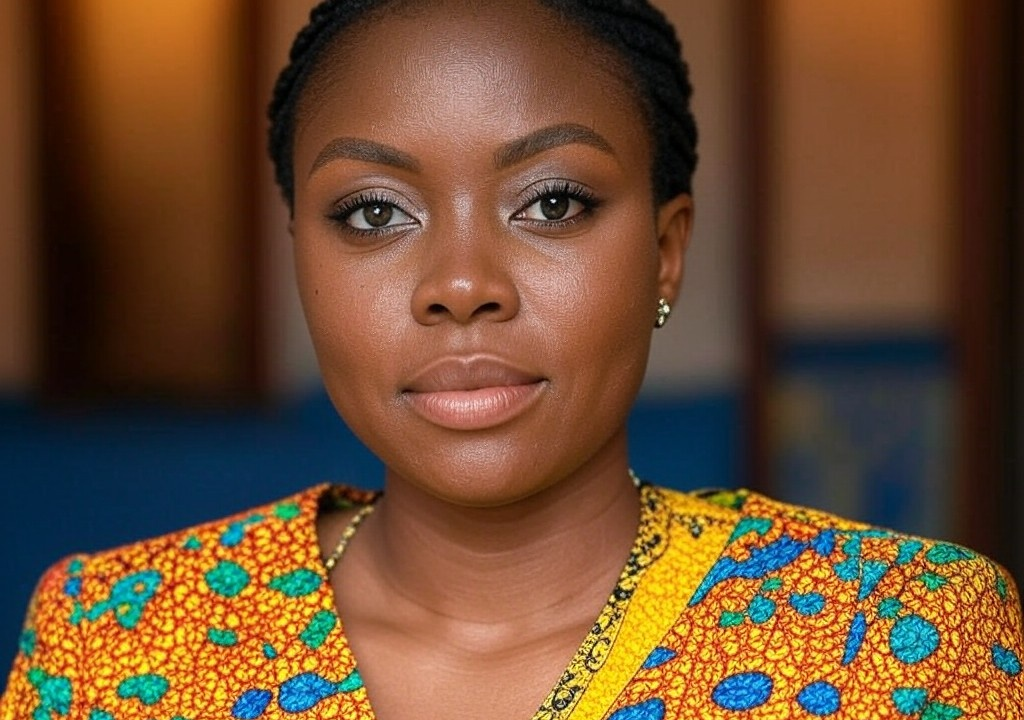How a Novel Taught Me Everything About Love, Loss, and Starting Over
It starts with heartbreak—or rather, with jollof rice gone heartbreakingly wrong. I’d just moved to London for grad school, and as a 26-year-old Nigerian woman adjusting to the (literal) cold of a new life abroad, I decided to welcome myself to my tiny student apartment with a pot of jollof, my trusty companion for every emotional occasion. I threw in too much tomato paste, burned the rice at the bottom, and ended up eating a sad, charred mess on my couch while side-eyeing my life choices. Classes hadn’t started yet, I was broke, homesick, and second-guessing the decision to leave a somewhat stable version of myself back in Lagos. Oh, and my long-term boyfriend and I had just broken up weeks earlier. Precisely: chaotic vibes.
Somewhere in the middle of all this emotional unraveling, I stumbled across Half of a Yellow Sun by Chimamanda Ngozi Adichie. “Stumbled” is the wrong word—it was gifted to me by my cousin Deola, who told me, “This book will wreck you and put you back together.” And boy, was she right. The novel is famous, yes—a sprawling historical narrative set in 1960s Nigeria during the Nigerian-Biafran War. But what struck me wasn’t just the political or historical elements (though that was stirring enough). What lodged in my heart and refused to let go were the intimate portraits of love—messy, flawed, vulnerable love.
Love Is Never One Thing
There’s a scene in the book where Olanna—the elegant, educated, quietly fiery protagonist—catches her partner, Odenigbo, in a betrayal so intimate it almost makes you gasp. I won’t spoil it, but let’s just say it’s the kind of scene that would have inspired WhatsApp group chats full of caps-locked, breathless commentary. Yet, instead of walking away, Olanna chooses to rebuild. And not in a “forgive to forget” Hollywood-romcom kind of way. It’s raw, human, and achingly real. Adichie showed me, perhaps for the first time, that love is—and always should be—a choice. Some days, you choose with your whole chest, and other days, you limp your way toward that choice.
Reading that scene so soon after my breakup was like yanking the Band-Aid off my tender, scarred heart. The truths in their relationship—fragile but worth repairing—made me think of mine. But unlike Olanna and Odenigbo, my version of love had reached its expiration date. Sometimes, you fight for the good parts; other times, you bravely concede the battle.
The fear of being labeled "a failure in love" is real. Back home, relationships don’t fail; they’re “managed,” glossed over for the sake of appearances, family pressure, and community whispers. But Chimamanda’s storytelling gave me permission to view love for what it is—blurry, ever-shifting, and complicated. It doesn’t have to fit into a tidy box. It can exist for a season and still be beautiful.
Loss Will Find You (But You’re Stronger Than It Is)
This book is unflinchingly honest about grief. Loss—whether it’s the kind you see coming or the kind that blindsides you—changes people. There’s Ugwu, the houseboy whose quiet devotion to the people in his life is shaken by the horrors of war. I couldn’t read his chapters without crying—his guilt, his need for redemption, his effort to rebuild himself after experiencing unimaginable pain. And then there’s Olanna again, grappling with the loss of a life she envisioned versus the brutal reality of war-torn Nigeria.
I realized something I wasn’t ready to admit yet: I hadn’t truly grieved the version of “me” I’d left behind in Nigeria, my family in Abuja, or even my ex. The old Harriet with the predictable life and carefully laid plans was gone. In her place was a messy, constantly doubting graduate student trying to fit into a city that couldn’t even pronounce her name correctly (it’s not “Har-ree-ett,” thank you very much). I needed to grieve my “what ifs” and let go of the imagined paths that no longer served me.
And yet, here’s Adichie’s masterstroke—she writes grief as a passage, not a destination. No matter how much the characters lose, there’s always a flicker of resilience. A line late in the book stayed with me: “Grief was the celebration of love, those who could feel real grief were lucky to have loved.” It was both a gut punch and an awakening. Heartbreak, loss, and reinvention weren’t punishments; they were signs of life. Signs that I loved deeply enough to feel.
Picking Up the Pieces
When I closed the book—after many nights of reading with tea and a blanket, whispering “Oh my God” every five pages—I felt profoundly different. Slowly, I stopped trying to recreate a Nigerian version of myself in London. I let that version rest, thanking her for getting me this far, while I worked on building a new version that embraced uncertainty as a friend rather than an enemy.
It trickled into everything—how I interacted with people, what I wanted in relationships, and how I approached love, not as the answer to loneliness but as something you cultivate when the time and person align. I started asking whether I was holding onto something (or someone) out of fear, habit, or societal expectation. And more often than not, the answer surprised me.
Adichie taught me to find beauty in the imperfections of romance and to allow myself the grace to move forward when something was undeniably broken. And trust me, whether it's a romantic relationship, a friendship, or even the person you thought you’d be at 30, letting go is its own wild and chaotic art. For me, reading Half of a Yellow Sun was like seeing a mosaic for the first time up close—all the fractured, colorful pieces that make up the messy, unpredictable masterpiece that is human connection.
Starting Over, One Chapter at a Time
When I finally touched down back in Abuja that December, posing for selfies with my younger cousins and inhaling the scent of my mom’s (proper) jollof rice, I was both the same Harriet and someone entirely new. The person who boarded the flight had been cracked open by love and loss, weighed down by everything I believed I should be. But the Harriet who returned? She was unfinished, vulnerable, and—most importantly—at peace with the idea of figuring things out slowly.
If you’re reading this while nursing a heartbreak or questioning everything from the past decade of your life choices, here’s what I’ll say: Start over. Don’t rush to glue the pieces together, though—sometimes, remaining undone is where the magic happens. Pick up a book or a memory—or yes, even a pot of poorly made jollof rice—and sit with your feelings. Grieve your losses, celebrate your past courage, and above all, don’t be afraid to rewrite your story.
Because if there’s one thing Half of a Yellow Sun taught me, it’s this: Life and love will always find you, exactly when you’re ready.




















